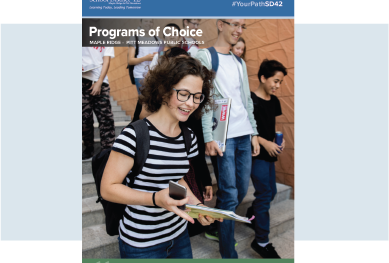English Language Learning Takes Time
Basic Interpersonal Skills (1-2 years)
- Day to day language of social interaction
- Surface level – here and now
- Familiar content
- Face to face conversation
- High frequency words (2,000 words)
- Simple sentence structure
- Low pressure (mostly for social conversation)
Cognitive Academic Language Proficiency (5 or more years)
- Formal, written text, specialized words, humour, idioms, textbook language, lectures, non-verbal communication
- More abstract
- Less familiar content
- Decontextualized
- High level literacy required
- Cultural and linguistic knowledge often necessary for understanding
- Low frequency words
- Skills like comparing, classifying, synthesizing, evaluating, and inferring are necessary
High pressure (for academic study and evaluations)
English Language Learning (ELL) Support Can Help:
- Develop English listening, speaking, reading and writing skills
- Support classroom learning
- Provide a more comfortable setting for acquiring new skills and asking questions
- Promote classroom routines and school expectations
- Develop academic language skills
- Develop social skills
- Support families and connect them to community resources
- Promote a sense of pride and understanding of various cultures and languages
Frequently Asked Questions
How do I know if my child needs ELL?
If you are new to Canada or if there is another language spoken in your home, your child may benefit from ELL support. An ELL specialist can complete an assessment at your child’s school and make a recommendation as to whether your child may benefit from ELL.
How can I get ELL support for my child?
You can contact the school to let them know you speak another language at home. An ELL specialist can then complete an assessment. Sometimes principals, classroom teachers or support teachers recognize that a student has another language at home and request that the ELL specialist assess the student.
What does ELL support look like?
A student’s ELL program is developed based on the assessment, individual needs and input from the classroom teacher. ELL support may take place in a small group setting or in class.
Is there an ELL reception centre for new Canadians in this school district?
No. Assessments are done at the student’s school by an ELL specialist. A copy of the assessment will be sent home.
How long can my child receive ELL support?
Language learning takes many years to develop. ELL students in BC may receive up to five years of ELL support. However, every child progresses at different rates and some students may require less than five years and others more.
Can we continue speaking our home language with our child?
Yes! Research shows that ELL students do best when they have a strong grasp of any home language. By continuing to speak your first language, you will help your child develop a richer vocabulary and higher level thinking in English.
If you speak another language in your home, please contact the ELL teacher in your school.
English Language Learning Takes Time
Basic Interpersonal Skills (1-2 years)
- Day to day language of social interaction
- Surface level – here and now
- Familiar content
- Face to face conversation
- High frequency words (2,000 words)
- Simple sentence structure
- Low pressure (mostly for social conversation)
Cognitive Academic Language Proficiency (5 or more years)
- Formal, written text, specialized words, humour, idioms, textbook language, lectures, non-verbal communication
- More abstract
- Less familiar content
- Decontextualized
- High level literacy required
- Cultural and linguistic knowledge often necessary for understanding
- Low frequency words
- Skills like comparing, classifying, synthesizing, evaluating, and inferring are necessary
- High pressure (for academic study and evaluations)
English Language Learning (ELL) Support Can Help:
- Develop English listening, speaking, reading and writing skills
- Support classroom learning
- Provide a more comfortable setting for acquiring new skills and asking questions
- Promote classroom routines and school expectations
- Develop academic language skills
- Develop social skills
- Support families and connect them to community resources
Promote a sense of pride and understanding of various cultures and languages
Frequently Asked Questions
How do I know if my child needs ELL?
If you are new to Canada or if there is another language spoken in your home, your child may benefit from ELL support. An ELL specialist can complete an assessment at your child’s school and make a recommendation as to whether your child may benefit from ELL.
How can I get ELL support for my child?
You can contact the school to let them know you speak another language at home. An ELL specialist can then complete an assessment. Sometimes principals, classroom teachers or support teachers recognize that a student has another language at home and request that the ELL specialist assess the student.
What does ELL support look like?
A student’s ELL program is developed based on assessment of language, individual student need, and input from classroom teachers. ELL support may be provided through direct instruction in a class setting, small group, or one-on-one. An ELL specialist might also provide adaptations and language acquisition strategies to content teachers.
How long can my child receive ELL support?
Language learning takes many years to develop. ELL students in BC may receive up to five years of ELL support. However, every child progresses at different rates and some students may require less than five years and others more.
Can we continue speaking our home language with our child?
Yes! Research shows that ELL students do best when they have a strong grasp of any home language. By continuing to speak your first language, you will help your child develop a richer vocabulary and higher level thinking in English.
If you speak another language in your home, please contact the ELL teacher in your school.


